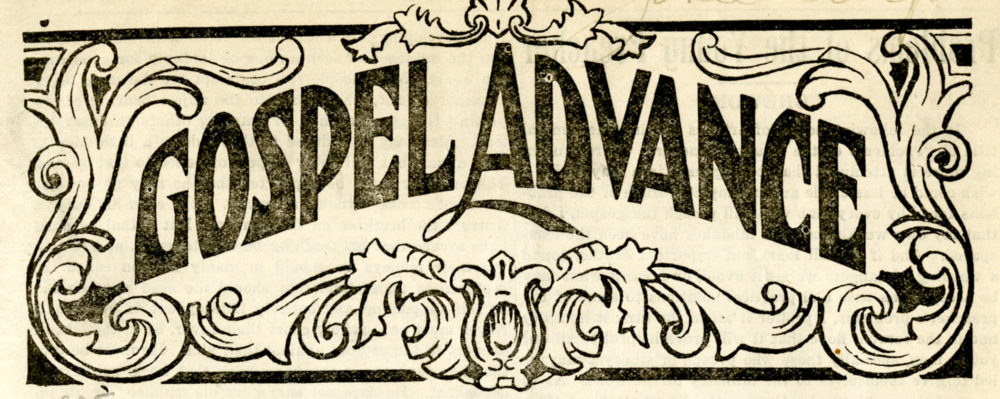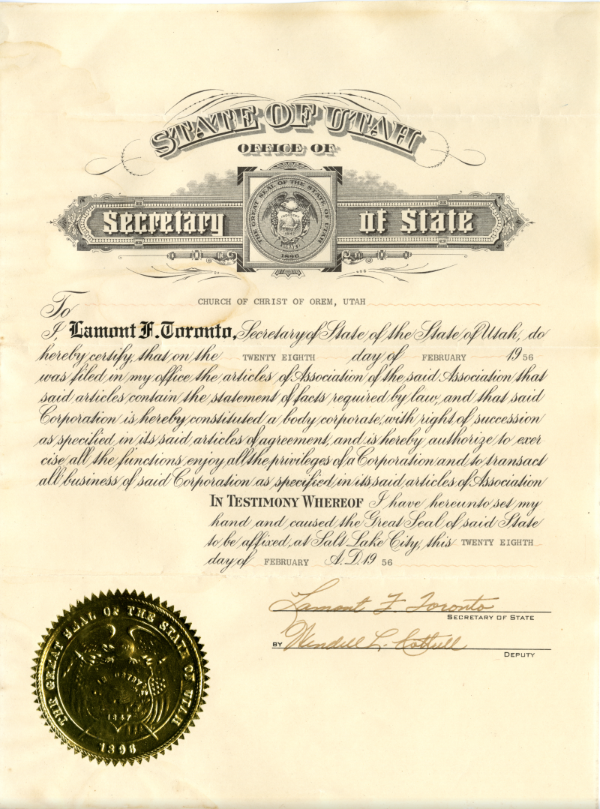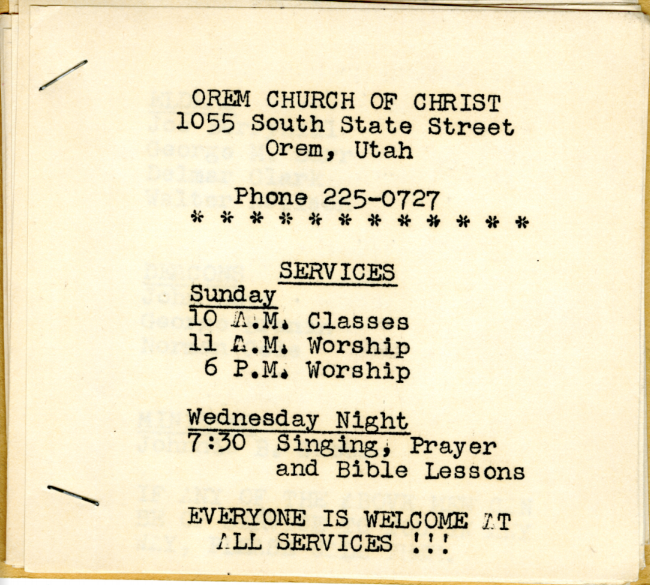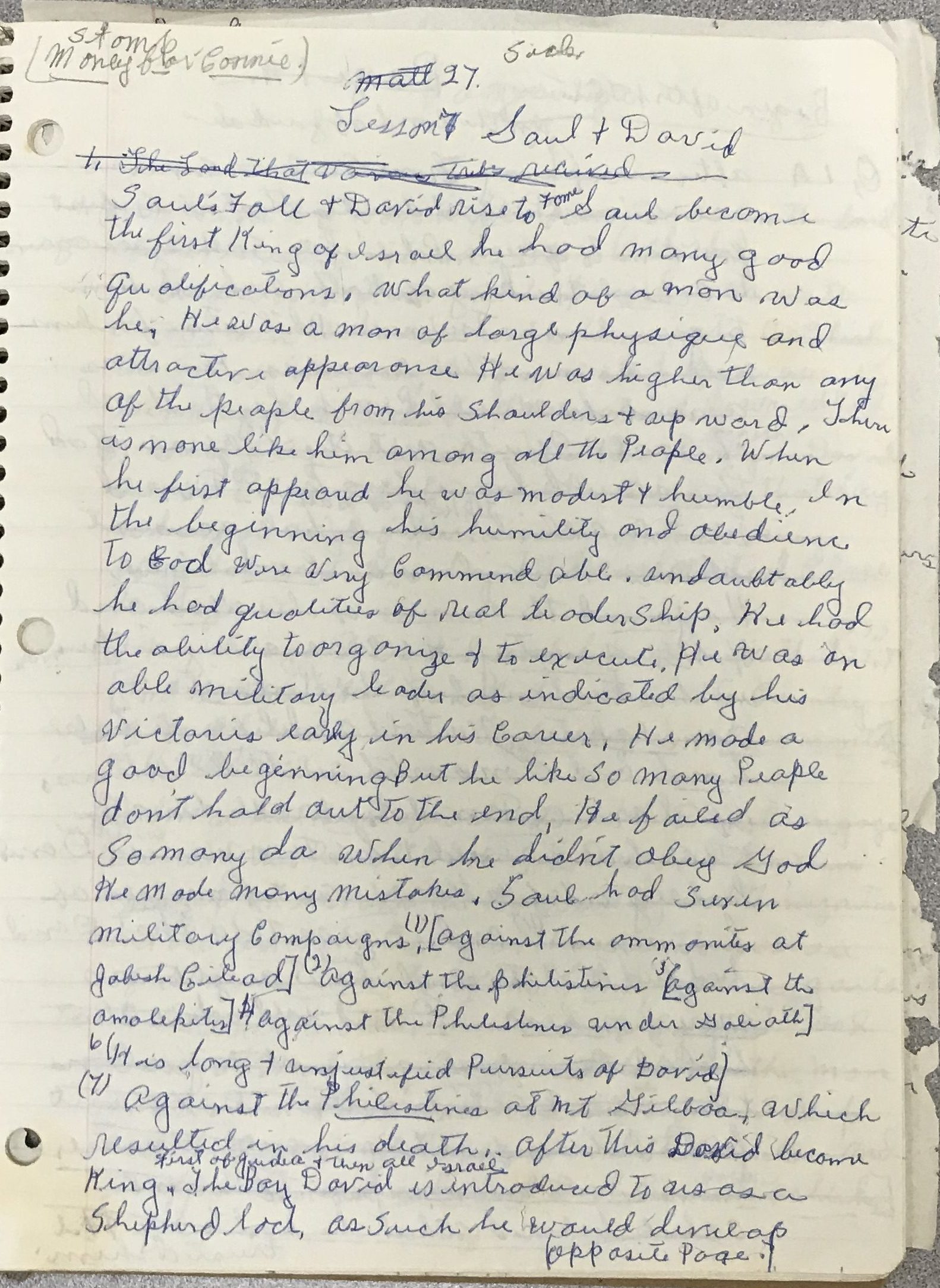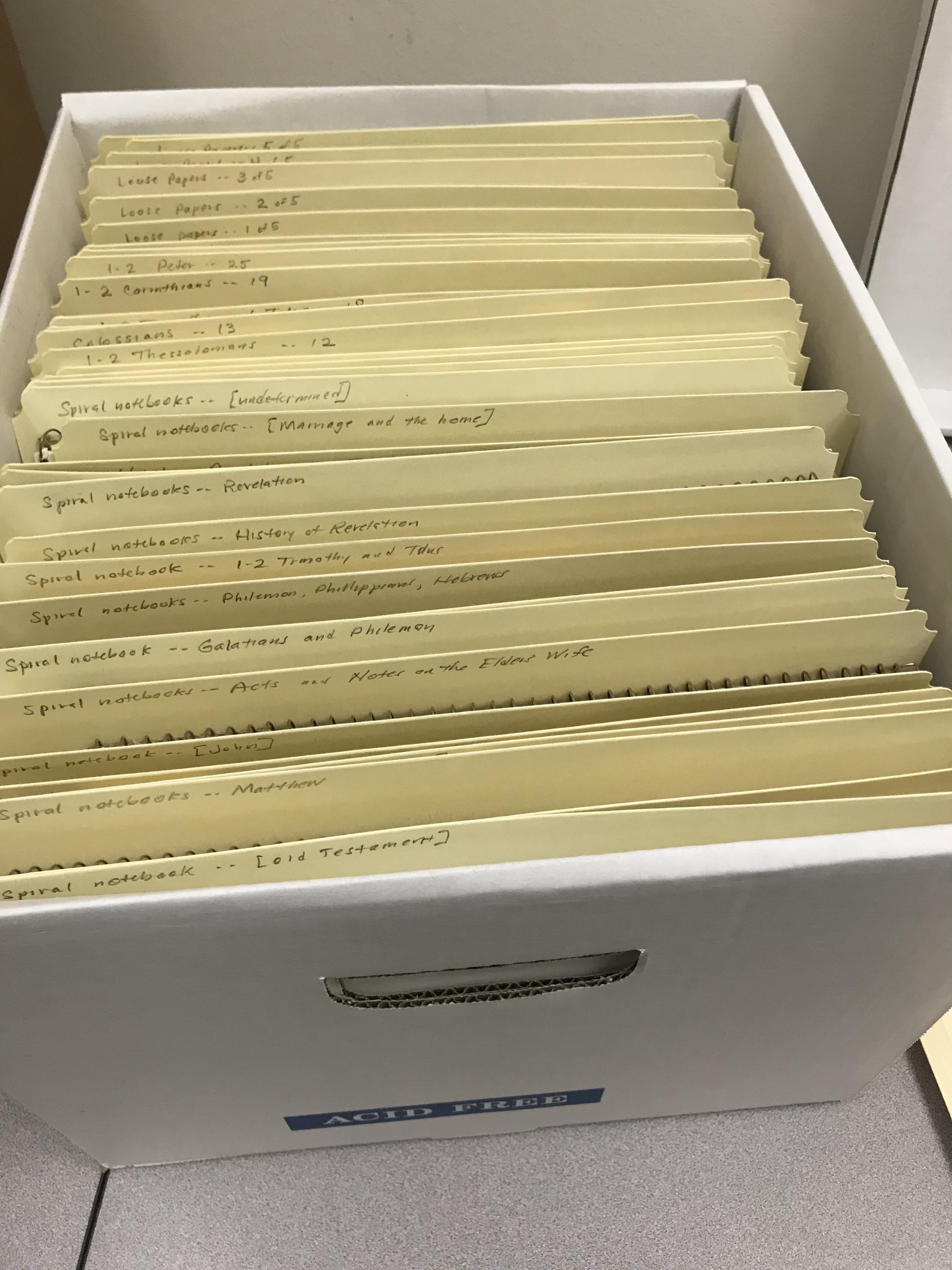The James Frank Black Papers, (1940-1946), are ready for researchers. An updated finding aid for these papers is now available and the entirety of the collection has been recently digitized and is on DigitalCommons@ACU and primed for research.
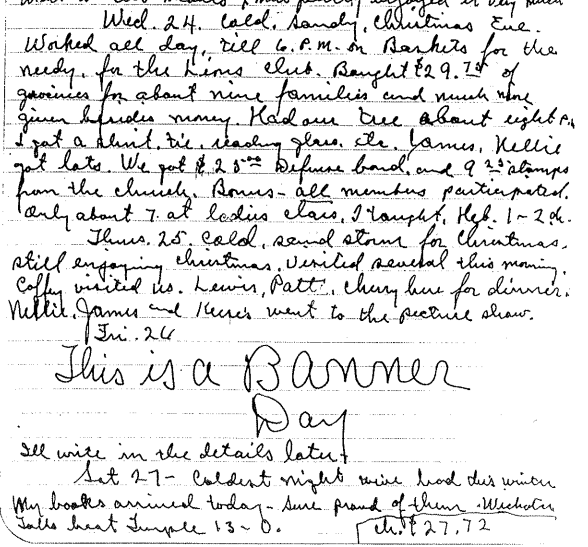
Page 54 of 1941 diary, box 1, folder 2, James Frank Black Papers, 1940-1946. Center for Restoration Studies MS #1. Abilene Christian University Special Collections and Archives, Brown Library. Abilene Christian University, Abilene, TX.
This collection consists of photocopies of a diary from January 1940 through December 1946. The collection is housed in one box and in one series.
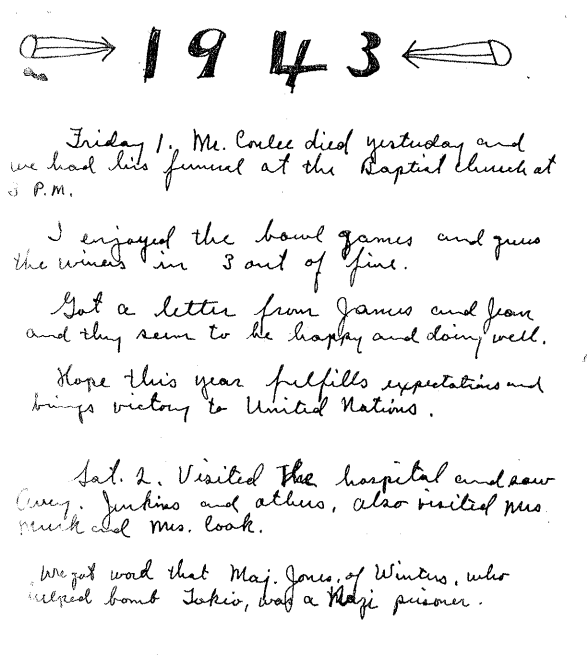
Page 1 of 1943 diary, box 1, folder 4, James Frank Black Papers, 1940-1946. Center for Restoration Studies MS #1. Abilene Christian University Special Collections and Archives, Brown Library. Abilene Christian University, Abilene, TX.
James Frank Black was a minister associated with the Church of Christ in Sheffield, Texas and with the Pecos River Encampment. He was born about 1894 and his date of death is unknown.
Related holdings in ACU Special Collections and Archives:
- The Leon Sharp Papers, 1949-1997
- Sharp was also involved with the Church of Christ in Sheffield, Texas
- Pecos River Family Encampment Papers, 1944-1996
